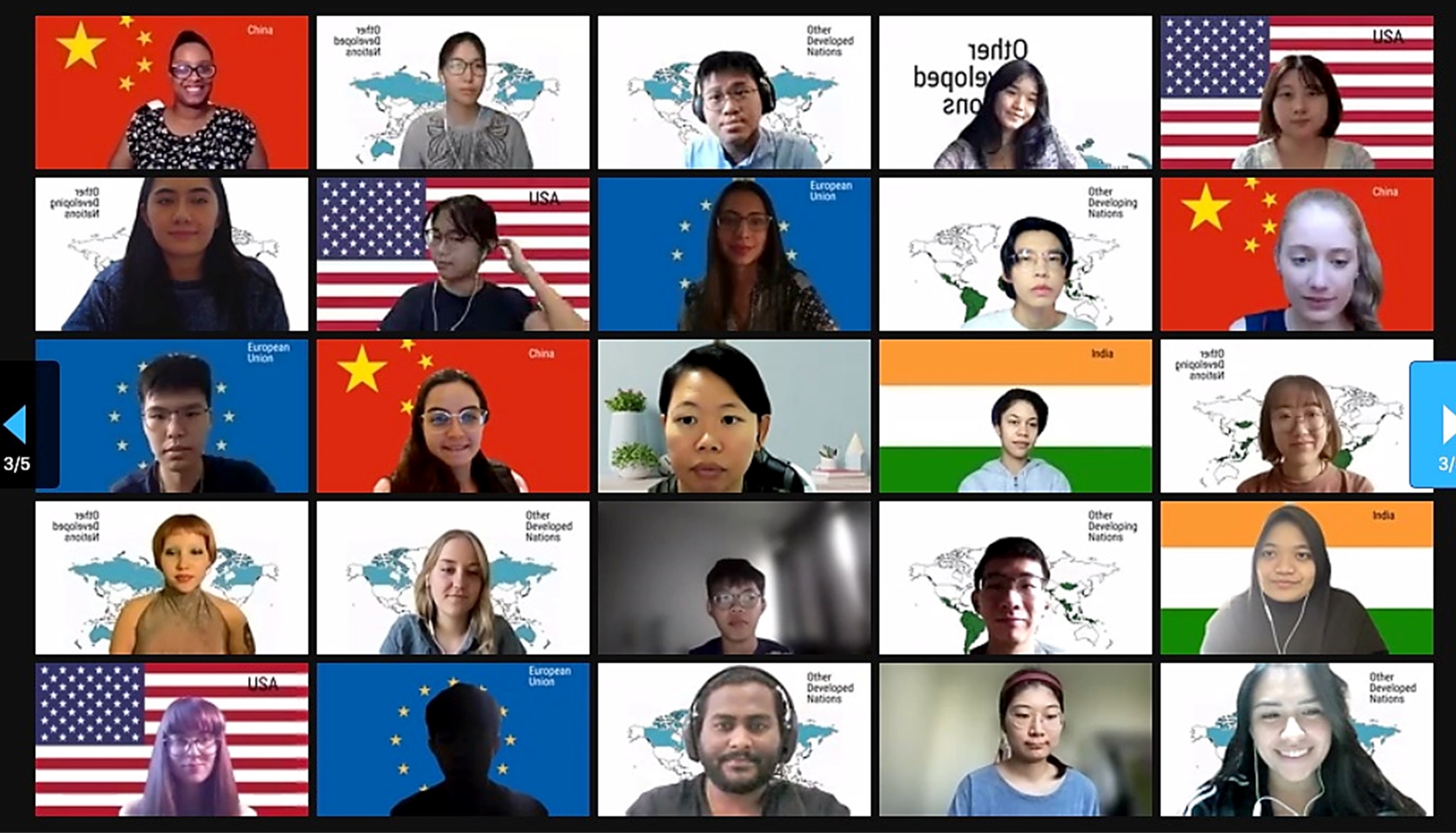
Climate action role-play fosters cross-cultural collaboration and leadership

Students form multi-country and multi-disciplinary teams for the role-playing simulation exercise to explore climate solutions.
Education is crucial to promote climate action. The Association of Pacific Rim Universities (APRU) hosted the Student Global Climate Change Simulation this summer to strengthen students’ understanding of global climate change, and explore adaptation and mitigation strategies.
The programme was a role-playing simulation exercise where students from APRU member universities formed multi-country, multi-disciplinary teams to play the role of delegates to the UN Climate Change Negotiations online on 26 August and 2 September. Online simulation activities were conducted using materials from the World Climate Interactive and the EN-ROADS simulation model developed by MIT. Ten CUHK students joined another 110 students from across the Pacific Rim to explore solutions for climate change. Prof. Amos Tai from the Earth System Science Programme, and Prof. Jerome Hui and Prof. Laura Falkenberg from the School of Life Sciences served as facilitators among other academics from APRU member universities.
The student teams discussed the human and environmental effects of climate change, as well as the economic impact that countries and regions consider in determining their position and global commitments. Natalie Chan, a postgraduate student from the Faculty of Law, realised that there are lots of efforts and considerations in formulating a country’s stance in climate action. She hopes to become more aware of the climate issues and put what she has learnt about sustainable climate action into practice. Ryan Yip, an undergraduate student majoring in Environmental Science, came to realise that climate change is not just an environmental issue, but an impending crisis that is intertwined with social issues such as poverty, economic development, public health, and biodiversity.
The programme has developed a network of committed citizens who are endeavored to take collective action against global warming. ‘I understand that we, as young adults, future leaders, and climate advocates, possess the intrinsic power to make a notable difference in our world. As an avid supporter of marine conservation and sustainable development, I am committed to spearheading initiatives in and creating significant impacts through my everyday life,’ said Ryan.